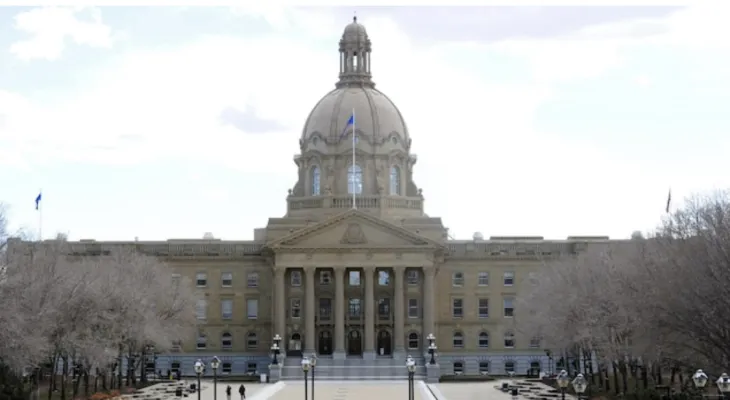Search here
Newspaper
Search here

Arab Canada News
News

Published: September 3, 2022
High oil and gas prices allow the Alberta government to dramatically increase its budget forecasts. It is now expected that the treasury of Canada's richest oil province will see a surplus of $13.4 billion for the 2022-2023 fiscal year, instead of the $511 million expected when the budget was presented in late February.
These new forecasts mean that Alberta will enjoy the largest budget surplus in its history, according to the Ministry of Finance in the United Conservative Party (UCP) government in Edmonton.
The size of the surplus is not surprising. Alberta Premier Jason Kenney spoke of a $13.2 billion surplus Tuesday afternoon, on the eve of his finance minister's economic update and just hours before the debate among candidates to succeed him as leader of the United Conservative Party and head of government.
All economists had predicted a huge surplus thanks to rising oil and gas prices.
Consequently, the Alberta government has doubled its forecasts for non-renewable resource revenues.
Revenues from oil, gas, and other hydrocarbon derivatives are expected to exceed $28 billion in the current fiscal year, by the end of March 2023.
It is known that Jason Kenney’s government is very cautious in its forecasts. It based its calculations in late February on a price of $70 US per barrel of West Texas Intermediate (WTI) crude oil, the US benchmark, while prices were approaching the $100 US threshold amid geopolitical tensions related to Russia's military invasion of Ukraine.
Between April and the end of June, the average price per barrel of this benchmark crude oil in the North American market reached $109 US due to the effects of the war in Ukraine and concerns about energy supplies.
The government expects this improvement in the energy sector to have a positive impact on Alberta's entire economy.
Business tax revenues may reach $6.1 billion this year, the highest in Alberta's financial history.
Priority to debt and savings
But given these expectations of a sharp rise in revenues, the Conservative government does not intend to increase spending.
However, Premier Jason Kenney announced the reindexing of income tax brackets for Alberta residents. This retroactive measure to the start of the 2022 fiscal year will cost the provincial budget about $300 million.
According to Finance Minister Jason Nixon, an additional 80,000 to 95,000 Alberta residents may find themselves exempt from provincial income tax as a result of this measure.
The rest of Alberta’s residents are expected to pay less tax or receive a larger tax refund next year.
To reduce public debt, more than $13 billion will be allocated this year and slightly more than $5 billion next year. This will reduce public debt to below the $80 billion threshold.
Minister Nixon did not mention other measures to help residents combat the inflation expected by the government to reach an annual rate of 6% this year.
The New Democratic Party of Alberta (Alberta's NDP), the left-leaning official opposition in the legislative assembly, had called for indexing some social programs to inflation.
“We are breaking revenue records with billions in proceeds, yet this government leaves children, seniors, and people with disabilities struggling to feed themselves. I think that’s a bad decision and I think it’s cruel,” said Kathleen Ganley, who represents one of Calgary’s ridings, Alberta’s largest city, in the legislature under the New Democratic Party banner.
But according to the Finance Minister, Alberta’s social assistance programs are among the most generous in Canada.
Comments